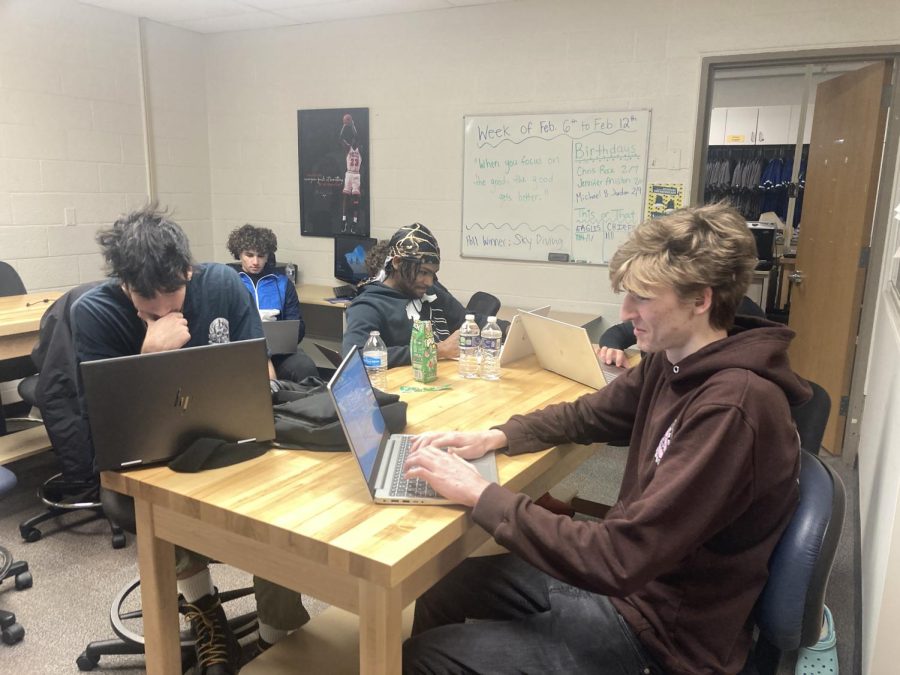AACC’s Athletic Department offers resources to student-athletes
Student-athletes who get injured or want to succeed at AACC, have resources in the Athletic Department. Shown, left, forwards Nicholas Augusterfer and Michael Duffy.
February 14, 2023
Student-athletes who get hurt, struggle to keep up with classes can tap resources in the Athletic Department designed specifically for players.
Student Athlete Success Coordinator Stephanie Eckert manages student-athlete retention, creates academic goals for players and makes sure they’re eligible to play sports. The Athletic Department has a study hall on the first floor in the Jenkins Gymnasium building for the athletes.
These resources are “definitely” working, Eckert, who started working at the college in 2021, said. “I think the retention rate is definitely … improved since I’ve been here. I think that when people are held accountable rather than just being on their own, it really elevates them … to meet certain benchmarks that help keep them on a schedule every week.”
Eckert manages the Riverhawks Rising Success Program, which helps students achieve weekly school goals, get help from tutors and learn how to use Canvas.
Eckert also oversees the Student Athlete Advisory Council, which serves as a liaison between the players and Athletic Department administrators. One member of each Riverhawks team serves on the council, which encourages community service.
Pitcher Donny White said the study hall, which athletes must visit twice a week, prevents him from “procrastinating” on school work.
“It helps us be more involved in and having somebody push us to be better,” White, a first-year criminology student, noted.
Pitcher Nick Rees said the study hall helps him concentrate more.
“It’s nice to come in here,” Rees, a first-year transfer studies student, said. “It’s a quiet environment [where we] get our work done and make sure we have good grades for the season [and] stay eligible.”
During home games, athletic trainer Amber Stanley, the coordinator of sports medicine and student athlete welfare, applies pregame and postgame treatment to any athlete struggling with an injury.
In the athletic rehab room, athletes use therapeutic ultrasound machines, heating pads and whirlpools, which can be used for ice and hot baths. The Athletic Department also offers game-ready machines, which applies cold compression to the muscles.
Stanley said she educates the student-athletes on nutrition and daily meal ideas.
“Our athletes largely are not eating enough and need to consume more calories,” Stanley noted. “So I try to give them ideas [on] how to do that in a convenient, nutritious [and] cost-effective way.”
Women’s head basketball coach Lionel Makell said the resources bring the team together.
“You got the academic part with Stephanie, you got the training part with Amber,” Makell noted. “They’re an integral part of the program.”
The Athletic Department also creates highlight videos for athletes who want to get noticed by other schools and allows players to use the on-campus fitness center, fields and the basketball court during non-practice hours.












